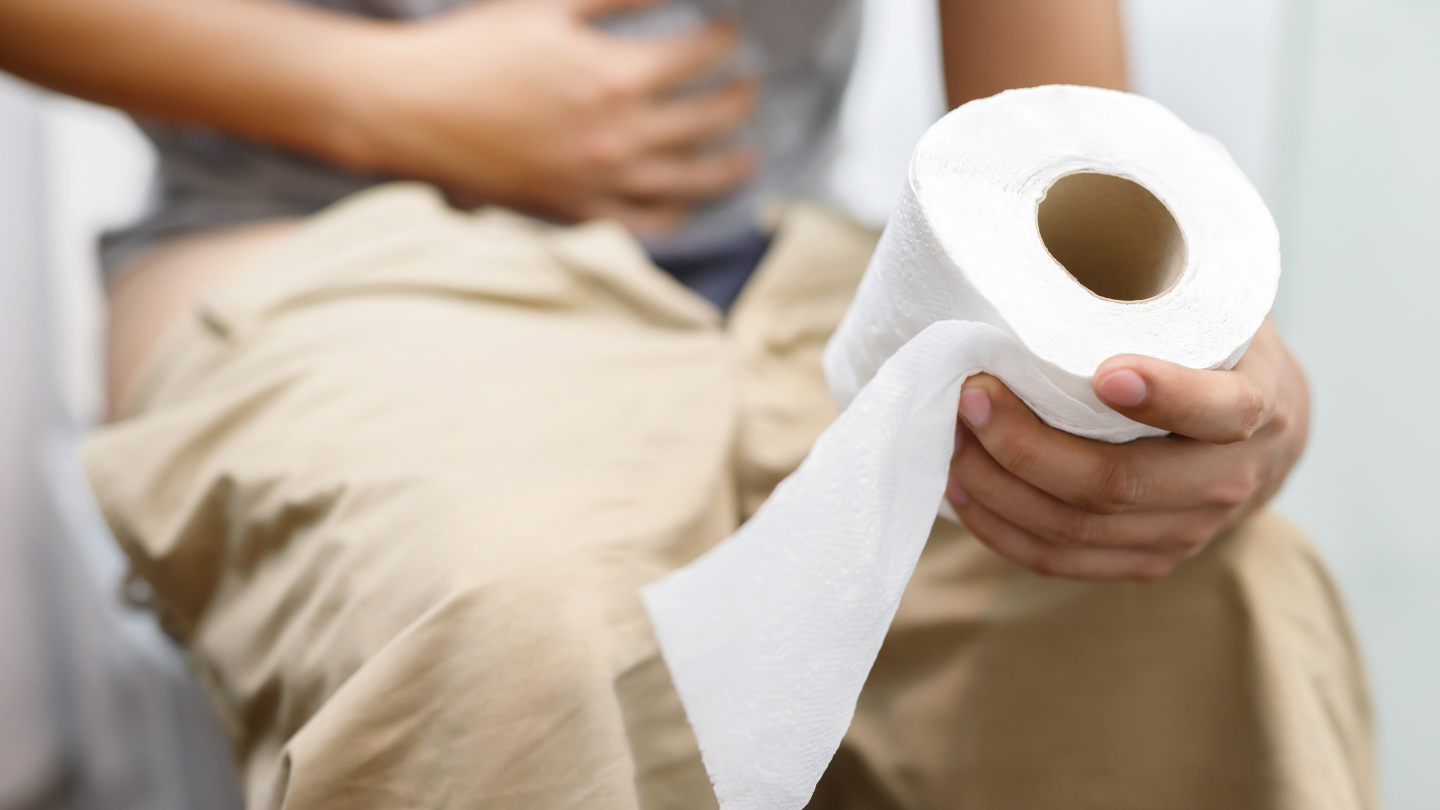
Diarrhea After Gastric Sleeve: 3 Reasons Why It Happens and How to Deal With It
Weight loss surgery is life-changing, but it also comes with adjustments in digestion. One of the most common concerns patients report is diarrhea after gastric sleeve. While it can be uncomfortable and disruptive, in most cases it is temporary and manageable. Understanding why it happens and knowing how to address it helps patients recover more confidently and avoid unnecessary complications.
Is It Normal to Have Diarrhea After Gastric Sleeve Surgery?
Many people ask is it normal to have diarrhea after gastric sleeve, and the answer is yes, at least in the short term. The body undergoes dramatic changes after sleeve gastrectomy. The stomach size is reduced, hormones regulating digestion shift, and the way food moves through the digestive tract changes. These adjustments often trigger temporary gastric sleeve diarrhea as the body adapts. Recognizing the timeline for gastric sleeve recovery can help patients understand when these symptoms should begin to settle.
For some, diarrhea after VSG lasts only a few days, while others may notice it intermittently for weeks. The key is distinguishing between expected bowel changes and persistent watery diarrhea after gastric sleeve, which may indicate a complication.
3 Main Reasons Why Diarrhea Happens After Gastric Sleeve
1. Dumping Syndrome
Dumping syndrome is one of the most common causes of diarrhea after sleeve surgery. When food, especially high-sugar or high-fat meals, moves too quickly from the stomach into the small intestine, it triggers rapid fluid shifts that lead to loose stools. Symptoms usually appear within 30 minutes of eating and can include abdominal cramps, nausea, dizziness, sweating, and diarrhea.
This reaction is more likely if patients consume sweets, fried foods, or dairy products soon after surgery. Learning to avoid these foods and eat smaller, slower meals is key to preventing gastric sleeve and diarrhea episodes related to dumping syndrome. Balancing meals with the right nutrients is easier when following a structured diet after gastric sleeve surgery that supports gradual adaptation.
Read More: Navigating Dairy Delights Post-Gastric Sleeve Surgery
2. Dietary Imbalances
Another common reason for diarrhea post gastric sleeve is rapid dietary change. After surgery, patients are encouraged to eat high-protein meals and reintroduce fiber gradually. However, increasing fiber intake too quickly, especially from raw vegetables or whole grains, can overwhelm the digestive system and trigger loose stools.
Lactose intolerance is another hidden factor. Many patients discover after surgery that their bodies struggle to digest dairy, which can result in watery diarrhea after gastric sleeve. Likewise, inadequate hydration can irritate digestion, as the body depends on fluids to balance stool consistency. Proper hydration is critical, and understanding staying properly hydrated after your gastric sleeve surgery can make a significant difference in managing these symptoms.
3. Malabsorption and GI Changes
The third reason relates to how nutrients are absorbed. While gastric sleeve surgery is not as malabsorptive as bypass, it can still alter the way fat and certain vitamins are digested. Changes in bile flow, microbiome balance, or pancreatic enzyme function may cause food to pass through the intestines too quickly.
In some cases, diarrhea after VSG may also be linked to conditions like small intestinal bacterial overgrowth (SIBO), bile acid malabsorption, or food intolerances that were less noticeable before surgery. These issues often require professional evaluation and treatment. Addressing discomfort like bloating can also benefit from essential tips for reducing gas after gastric sleeve surgery to keep digestion stable.
Read More: Comparing Gastric Sleeve vs. Gastric Bypass
When Should You Worry About Diarrhea After Sleeve Surgery?
It’s important to know when diarrhea after gastric sleeve crosses the line from normal adaptation to warning sign. While occasional loose stools are expected, ongoing diarrhea after sleeve surgery accompanied by dehydration, severe abdominal pain, fever, or foul-smelling stools should not be ignored.
Possible complications include infections, gastric sleeve leaks, or intestinal blockages. If symptoms are severe or persistent, medical evaluation is essential. Therefore, knowing how many carbs after a gastric sleeve are okay is crucial to ensure carbohydrate intake isn’t contributing to digestive stress.
What Can I Take for Diarrhea After Gastric Sleeve?
Patients often wonder what can I take for diarrhea after gastric sleeve to feel better. Over-the-counter medications like loperamide may provide short-term relief, but they should only be used with a doctor’s approval. More important is addressing the root cause:
- Avoiding sugary, fatty, or dairy foods that trigger dumping syndrome.
- Balancing fiber intake by introducing it gradually.
- Staying hydrated with water and electrolyte drinks.
- Using probiotics to restore healthy gut bacteria if recommended.
- Working with a dietitian to ensure nutrient balance.
If diarrhea post-gastric sleeve continues, your provider may recommend enzyme supplements, prescription medications, or further testing to check for malabsorption. Beverages can also influence digestion, making sipping smart your post-gastric sleeve guide to beverages an important part of recovery planning.
Long-Term Lifestyle Strategies to Prevent Gastric Sleeve Diarrhea

Digestive health after bariatric surgery depends on consistency. Patients should adopt long-term strategies that reduce the risk of gastric sleeve and diarrhea episodes:
- Eat small, frequent meals and chew thoroughly.
- Limit trigger foods such as fried meals, processed sugar, and carbonated drinks.
- Prioritize lean proteins and soft-cooked vegetables.
- Avoid drinking fluids with meals to prevent overwhelming the stomach.
- Keep a food diary to track what foods cause discomfort.
Over time, most patients find that their digestive system adapts, and diarrhea after VSG becomes less frequent or disappears completely. Including variety with caution is also key, such as slowly reintroducing foods like exploring pasta after a gastric sleeve when the stomach is ready.
Read More: What Foods Can You Not Eat After Gastric Sleeve Surgery?
Final Thoughts
Diarrhea after the gastric sleeve is a common part of recovery, but it usually improves as the body adjusts. The three most common reasons are dumping syndrome, dietary imbalances, and changes in absorption. While most cases are temporary, persistent diarrhea post-gastric sleeve should always be evaluated to rule out complications and ensure proper healing. Patients managing a gastric sleeve and diarrhea can also benefit from understanding whether you can drink coffee after gastric sleeve surgery, since caffeine can sometimes aggravate digestive issues.
Patients dealing with a Gastric Sleeve in Baltimore and diarrhea can benefit from professional support. Ascension Saint Agnes Bariatric Surgery provides specialized care to help patients manage digestive side effects, adapt to post-surgery nutrition, and recover safely. Their team offers personalized guidance and treatment strategies to ensure long-term success. Whether you’re considering bariatric revision surgery, robotic surgery, or hernia surgery, they provide expert care tailored to your needs. They specialize in advanced procedures such as Roux-en-Y gastric bypass and offer effective solutions for conditions like upper endoscopy. For more information, contact us today to learn how we can help you achieve lasting health improvements.
Frequently Asked Questions
Is diarrhea regular after gastric sleeve surgery?
Yes, mild diarrhea is common after gastric sleeve surgery as your digestive system adjusts to smaller meals and altered digestion. It typically improves within a few weeks as your body adapts.
What causes diarrhea after gastric sleeve surgery?
The leading causes include dumping syndrome, rapid dietary changes, and minor malabsorption. Consuming high-sugar, fatty, or dairy foods can trigger these reactions, especially in the early recovery stages.
How long does diarrhea after a gastric sleeve last?
For most patients, symptoms last a few days to a few weeks. Your bariatric team should evaluate persistent or severe diarrhea lasting beyond this period to rule out infection, malabsorption, or other complications.
What can I take for diarrhea after a gastric sleeve?
Over-the-counter medications like loperamide may help temporarily, but only under medical supervision. The focus should be on avoiding trigger foods, staying hydrated, balancing fiber intake, and using probiotics if recommended.
When should I contact my doctor about diarrhea after a gastric sleeve?
Seek medical attention if diarrhea is severe, frequent, or accompanied by dehydration, fever, abdominal pain, or foul-smelling stools. These symptoms may indicate a complication that needs prompt treatment.